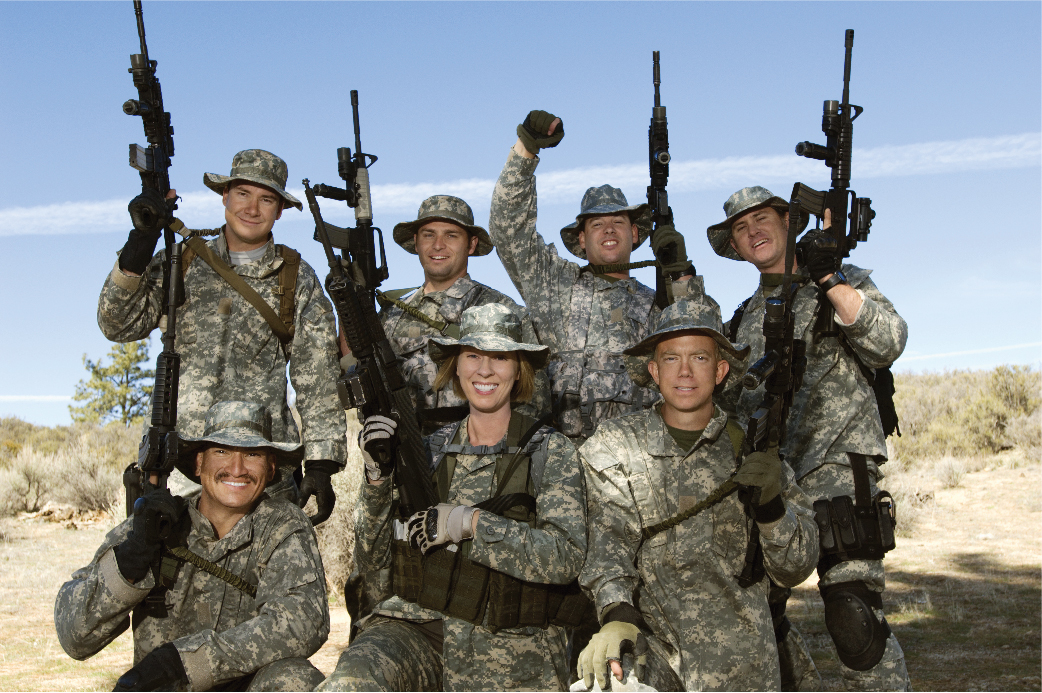Who do you want on your team? There is no more fundamental question.
That’s the question the NFL, the military, business, and every group asks that wants to get something done. This question–who do you want on your team–tops business fundamentals like sales and revenue. With the right team, every problem can be solved except those like hurricanes and tornados. Even well -funded organizations with everything going for them fail because of dysfunctional teams.
Putting together a great team with effective team members often seems to be a huge stroke of luck. It is sometimes a once or twice career happening. And its true that great teams are the result of many factors, some within our control–others not.
Nonetheless, organizations can build consistent successful teams by using a teambuilding strategy that they consistently follow.
Here are the components:
Select for People Who Want More than Just a Job–they have a Life Objective. Put another way, you’re looking for a person who lives an intentional life and knows what they want. I have many friends who want to play out the clock of their lives to that moment when they can retire, which, incidentally, they wish were tomorrow. Their bucket list may include a trip to Tahiti, but not building an organization that adds long-term value long after they are gone. If you need someone who moves the needle on building your organization, you need the life purpose driven person I’m describing.
Resumes Are Critical–But How Do You Get Beyond Them? There is no doubt that there is real value in top level recruiting companies with algorithms that find viable candidates. But search firms will be the first to admit that in order to choose the right team member, you have to find out who the person really is. Based on our work with organizations, the reality factor is in choosing employees is that less than half–even with outstanding resumes–will be outstanding employees–those who make a huge, positive impact on the organization. It is also true based on our findings that fully 20% of those with outstanding resumes will flame out as team members in their first year.
Discovering the “It” Factor in Team Members You Choose. There is what we call the illusive “It” Factor in finding the team member with the right skills that fits and functions on a team–a star player among star players. It is the unique combination of success factors that are part of their skillset, their mindset, and their ability to act and react in the moment. They must have the instinctive sense of what to do in key moments.
Foxholes and Friends–Who Do You Want to Be With? In the years of World War I, Foxholes were a key part of military tactics. All along the enemy lines small groups of soldiers would dig holes about 5 feet deep and about 6 feet wide. These foxholes were home to the small group for hours or days to protect them from oncoming enemy attack from ground or air. Soldiers bonded into brothers at their point of power and vulnerability.
The kind of team member I’d choose to be in a foxhole with, surrounded by tank fire and land mines, the person who has the illusive “it,” difficult to find and absolutely essential to organizational survival. There are a lot of nice people with integrity I’d be scared beyond belief if I were depending on them. There is that take charge person who knows what to do in totally ambiguous situations and saves the day. They not only “have my back,” they know how to move me to move forward.
What the “It Factor” Looks Like. Kirk Dando, management consultant and best selling author, describes the team member with the “It” Factor in this way.
“For me, the three things would want in a team member would be:
- Someone’s whose story reeks of grit, determination, ability to figure it out and creative problem solving
- I would want their story to include how many people would want to follow them to the new job.
- I would want hear they have a methodology or approach to systematically get results and speak to is with specificity and how it drives engagement and accountability. There are simple questions to ask to get to the heart of these three things.”
Skin in the Game. The most important element in choosing a team member is their sense of SKIN IN THE GAME. Why is it important to me for this organization to succeed? I regularly get responses from people to the Tuesday Report from people with great skill sets and experience who just don’t know why the should care. An organization that builds strong teams is really looking for the person who finds a sense of identity and meaning in what their organization is doing. You want them to see their life and future career tied up in the organization and its success.
Teams and the Future
Teams are here to stay and are not going away, and we must follow a strategy to create reliably strong teams. Teams with energy, synergy and the ability to think together to solve the complex issues of organizations today will be the drivers of today and the future. The dynamics of teams will change with technology and organizations and team members must live in a system where they must constantly adapt. Teams and team members must work effectively in this always evolving fluid environment. Effective team members, however, must be thoroughly anchored in their ability to relate effectively as team members and direction driven to accomplish team goals.






